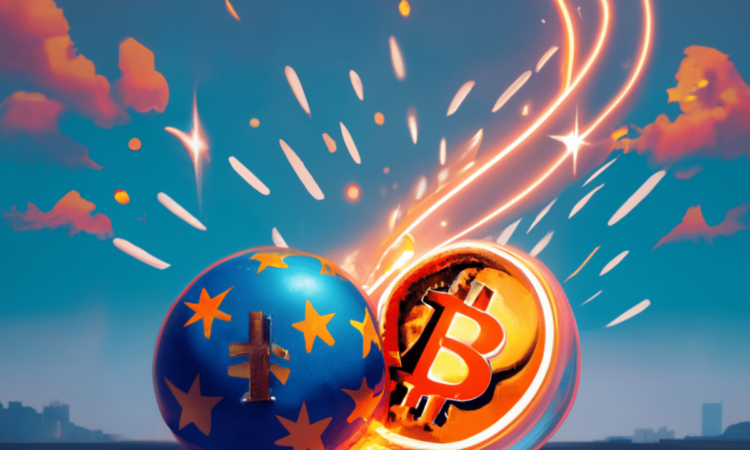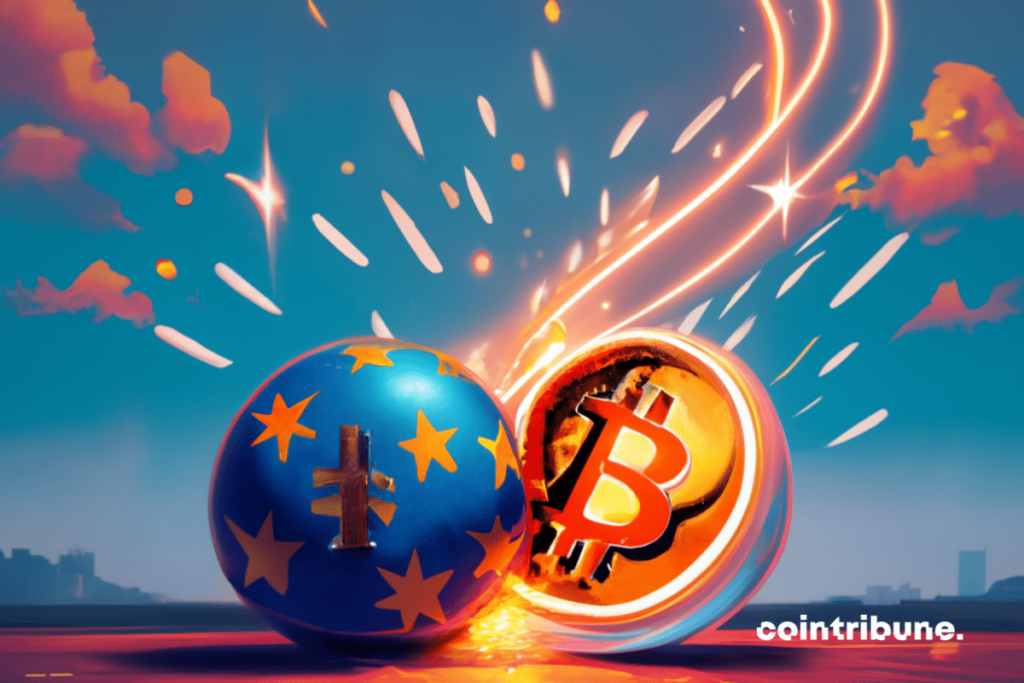
15h12
4
min of reading 
In the hushed corridors of the European Parliament, the air is laden with mystery: stringent laws on sanctions against crypto service providers have been put to the vote. A direct inspiration from the American model of repression? Crypto enthusiasts are holding their breath.

The EU tightens sanctions: Cryptos in the crosshairs
Across the Atlantic, sanctions against cryptocurrency exchange platforms are sending shivers down the spines of financial magnates. Binance, a giant in the industry, had to pay an astronomical fine exceeding 4 billion dollars. Meanwhile, the US government is flexing its power by seizing illicit bitcoins from the Darkweb, amassing a fortune of nearly 200,000 BTC in its vaults.
CoinDesk reveals a new twist: Europe, torn between tradition and modernity, is seriously considering cracking down on uncooperative crypto players. Regulatory thunder that rumbles at the gates of blockchain giants.
Last Tuesday, the European Parliament greenlit new rules aimed at bolstering sanctions across the 27 member states. Now, these rules will also extend to cryptocurrency service providers, who could see their assets, including cryptos, frozen in the case of non-compliance.
This vote marks a crucial step in the EU’s efforts to harmonize the enforcement of sanctions throughout the Union. Adopted by an overwhelming majority of 543 votes in favor, 45 against, and 27 abstentions, these rules were motivated by recent tensions with Russia, particularly in response to the invasion of Ukraine.
Sophie in ‘t Veld, Dutch representative, emphasized the necessity of this legislation, asserting that it closes the gaps in divergent national approaches and allows for the confiscation of frozen assets.
“We need this legislation because divergent national approaches have created weaknesses and loopholes, and it will allow for the confiscation of frozen assets,” she clarified.
A decision applauded by proponents of European cooperation in security and combating financial sanction violations.
An ambiguous area of application
EU sanction decisions may be adopted uniformly, but their implementation varies by member state. The press release highlights that each country has the power to define what constitutes a sanctions violation and the corresponding measures.
According to the release, the EU’s financial restrictions also extend to services related to cryptos, including the provision of crypto-assets (considered as securities) and wallets. Potential sanctions include asset freezes, including cryptocurrencies.
The newly adopted rules clearly define possible violations, such as failing to freeze funds, travel bans, arms embargoes, and transactions with entities from sanctioned states like Russia.
While the legislation still needs to be approved by the Council, it is clear that the impending restrictive measures on sanctions will be game-changers once implemented.
Maximize your Cointribune experience with our ‘Read to Earn’ program! Earn points for each article you read and gain access to exclusive rewards. Sign up now and start accruing benefits.
La révolution blockchain et crypto est en marche ! Et le jour où les impacts se feront ressentir sur l’économie la plus vulnérable de ce Monde, contre toute espérance, je dirai que j’y étais pour quelque chose
DISCLAIMER
The views, thoughts, and opinions expressed in this article belong solely to the author, and should not be taken as investment advice. Do your own research before taking any investment decisions.






